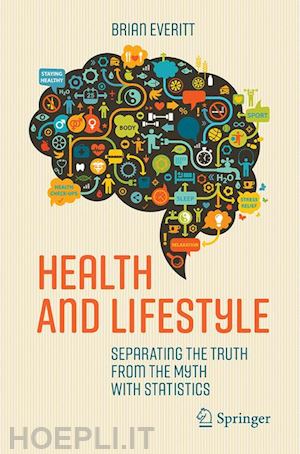
Questo prodotto usufruisce delle SPEDIZIONI GRATIS
selezionando l'opzione Corriere Veloce in fase di ordine.
Pagabile anche con Carta della cultura giovani e del merito, 18App Bonus Cultura e Carta del Docente
The main message of this book is that people should be on their guard against both scare stories about risks to health, and claims for miracle cures of medical conditions. In the 21st century hardly a day passes without another article appearing in the media about a new treatment for a particular disease, new ways of improving our health by changing our lifestyle or new foodstuffs that claim to increase (or decrease) the risk of heart disease, cancer and the like. But how should the general public react to such claims, given that some of the journalists writing them focus on the sensational rather than the mundane and often have no qualms about sacrificing accuracy and honesty for the sake of a good story? Perhaps the wisest initial response is one of healthy scepticism, followed by an attempt to discover more about the details of the studies behind the reports. But most people are not, and have little desire to become experts in health research. By reading this book, however, these non-experts can, with minimal effort, learn enough about the scientific method to differentiate between those health claims, warnings and lifestyle recommendations that have some merit and those that are unproven or simply dishonest. So if you want to know if ginseng can really help with your erectile dysfunction, if breast cancer screening is all that politicians claim it to be, if ECT for depression is really a horror treatment and should be banned, if using a mobile phone can lead to brain tumours and how to properly evaluate the evidence from health and lifestyle related studies, then this is the book for you.
Some Medical History, a Little Statistics and a Very Small Dose of Genetics.- Treatments Good, Bad and Indifferent and How do we Tell? The Randomized Clinical Trial.- Will Drinking Too Much Coffee Result in a Heart Attack? Risk Factors and Health.- Let’s Talk About Cancer.- Food, Weight and Lifestyle: Is Eating too Much and Moving too Little Bad for Your Health?- Alternative Therapies; Magic, Miracles and Delusions.- Epilogue.
Professor Everitt is an emeritus professor of King’s College, London, having retired in 2004. He is the author of over 70 books on statistics including two previously published by Springer, Chance Rules and An Introduction to Multivariate Analysis with R (jointly authored with Professor Torsten Hothorn). He is also Editor-in-Chief of the journal Statistical Methods in Medical Research (SMMR). In his retirement Professor Everitt continues to write and to edit SMMR, in between frequent games of tennis and long walks in the countryside.











Il sito utilizza cookie ed altri strumenti di tracciamento che raccolgono informazioni dal dispositivo dell’utente. Oltre ai cookie tecnici ed analitici aggregati, strettamente necessari per il funzionamento di questo sito web, previo consenso dell’utente possono essere installati cookie di profilazione e marketing e cookie dei social media. Cliccando su “Accetto tutti i cookie” saranno attivate tutte le categorie di cookie. Per accettare solo deterninate categorie di cookie, cliccare invece su “Impostazioni cookie”. Chiudendo il banner o continuando a navigare saranno installati solo cookie tecnici. Per maggiori dettagli, consultare la Cookie Policy.